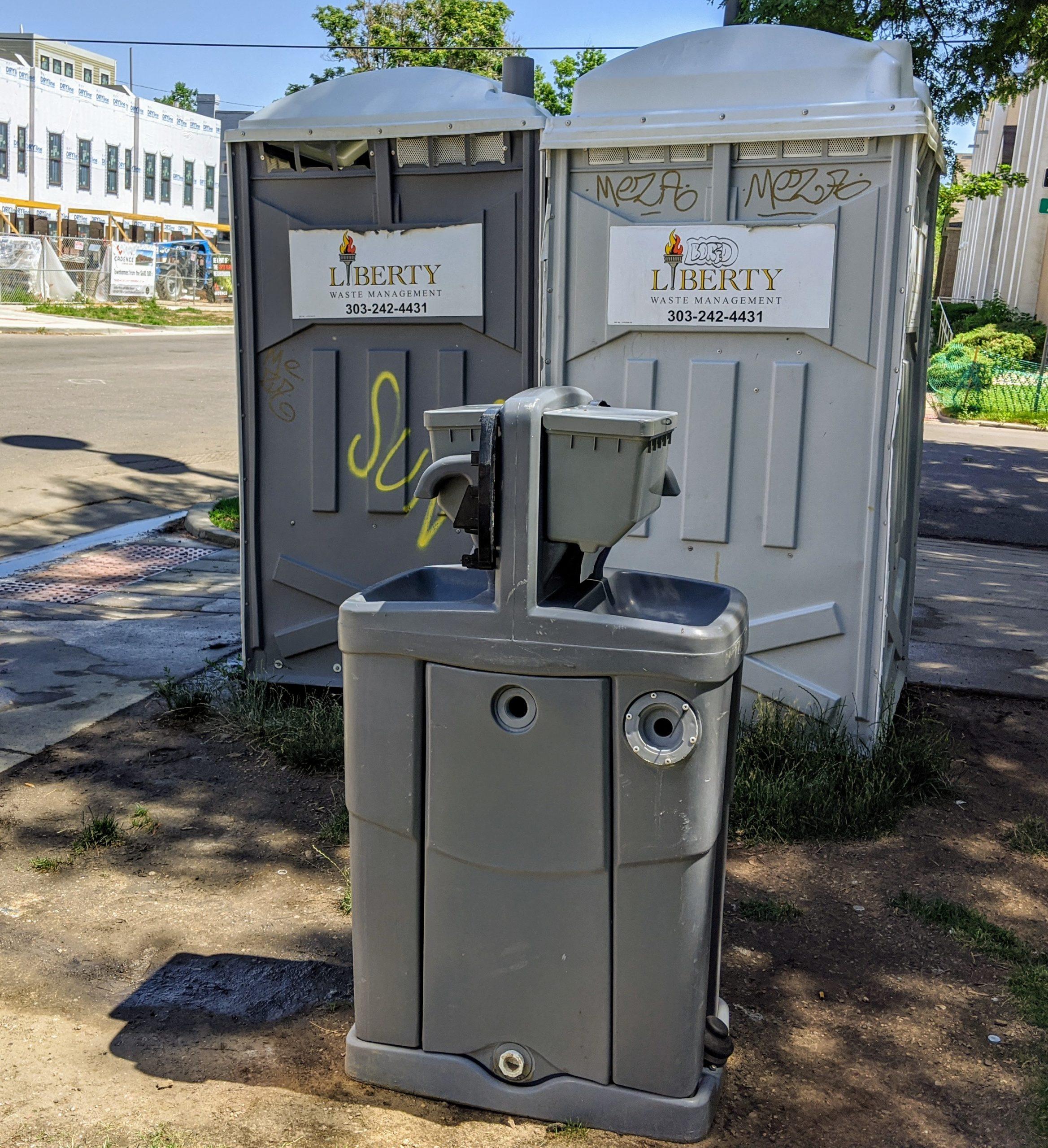Testing at nine Denver shelters in late May and early June showed that between 6 and 7 percent of people experiencing homelessness were coronavirus-positive.
That's higher than the positive rate of 3 percent for the overall population in Denver that officials reported this week and the statewide rate of just over 5 percent. But the latest results from Denver shelters are much lower than those from earlier tests among smaller groups in shelters, and much lower than rates of the general public in places such as Texas (12.7 percent), Florida (13.4 percent) and Arizona (23.2 percent) amid a coronavirus resurgence in the South and West as politicians have allowed economic activity to resume.
Health and political officials in Colorado are advising people to still be on their guard. So is Cathy Alderman, vice president of communications and public policy for the Colorado Coalition for the Homeless, which has been working with Denver Public Health and the Denver Department of Public Health and Environment to test people experiencing homelessness. But Alderman said the results of the latest testing prove the effectiveness of efforts so far to raise awareness about how the coronavirus is spread and to ensure people who are frail or who have and can transmit COVID-19 are separated from others experiencing homelessness.
"I'm feeling good about (controlling) virus spread," Alderman said. But "I still have a lot of concerns about housing. And I have a lot of concern about what a second wave (of coronavirus transmission) means."
Between May 27 and June 12, Alderman's coalition and Denver public health officials tested 376 volunteers, whether they showed symptoms of respiratory illness, at the large, 24-hour shelters at the National Western Complex and the nearby Coliseum that were set up since the pandemic hit Denver. Of those 376, 24 tested positive, or just over 6 percent.
Between May 18 and June 12, 290 volunteers were tested at the 48th Avenue and Crossroads shelters, which are run by the Salvation Army; the Delores Project; the Gathering Place; Samaritan House, which is run by Catholic Charities; Urban Peak; and the Volunteers of America Family Motel. Of those 290, 20, or just under 7 percent, tested positive.
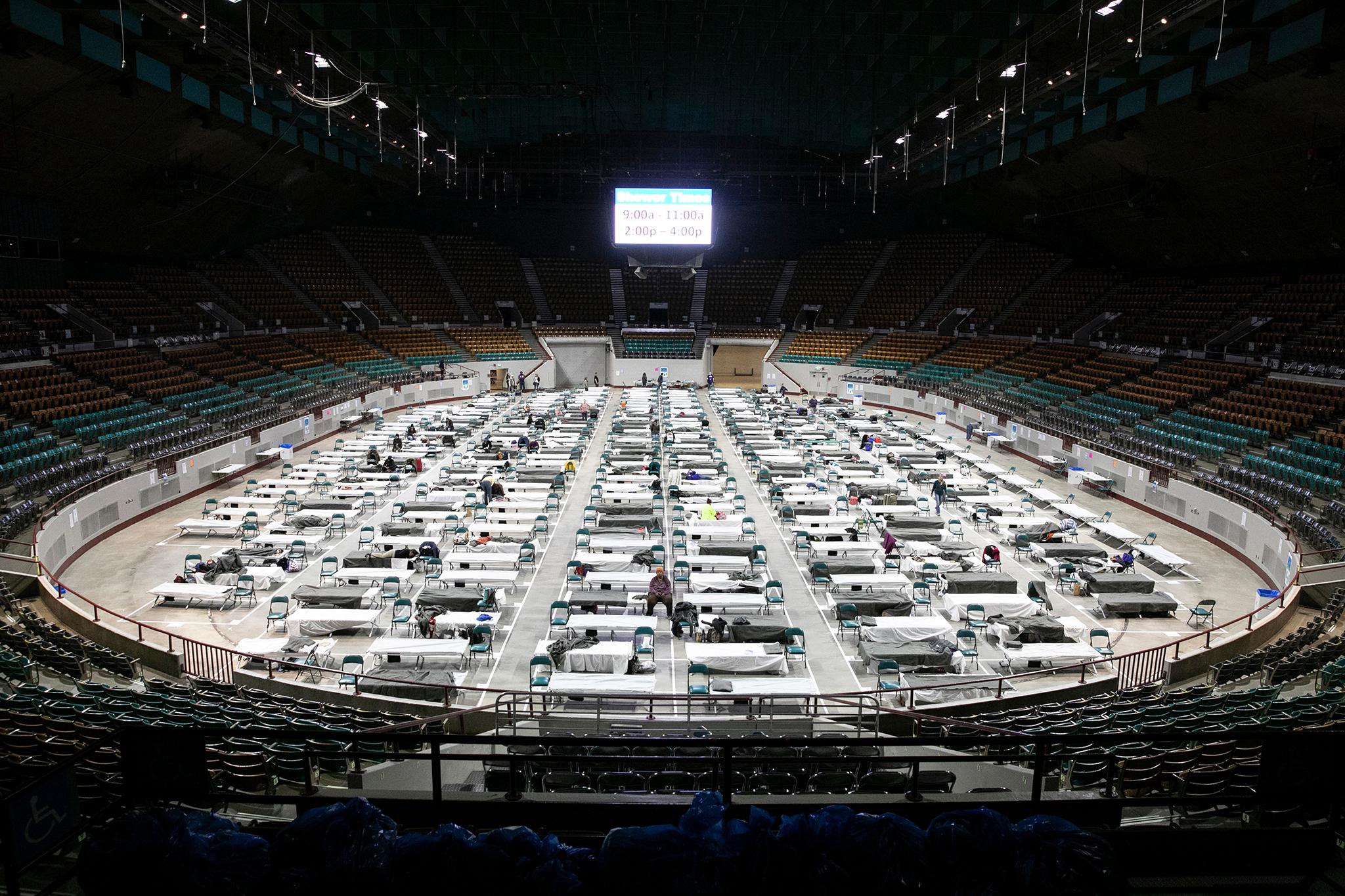
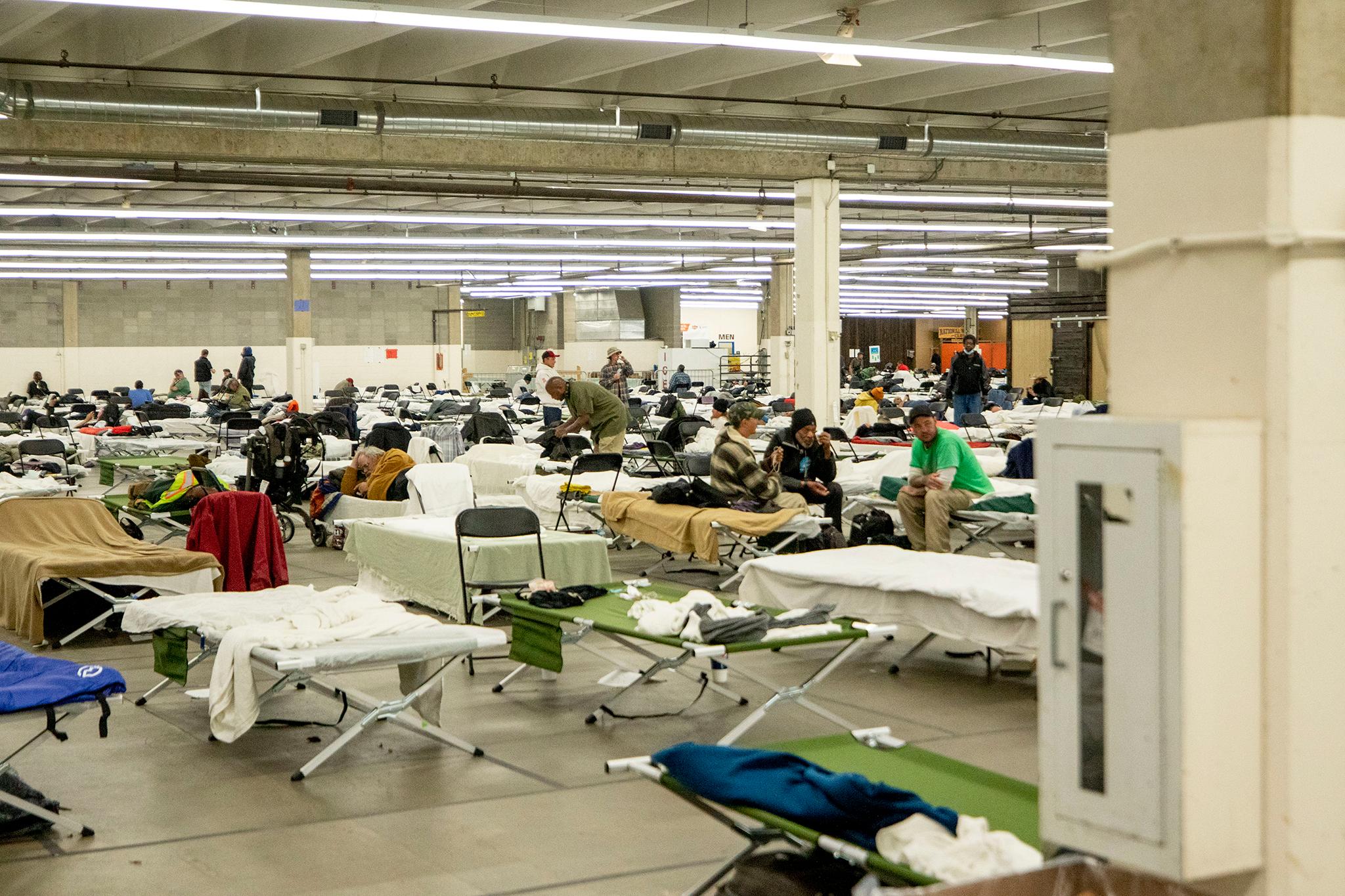
Those who tested positive or who during screening were determined to be at high risk because of other health problems were given hotel rooms. The city of Denver and nonprofit organizations have in recent months secured hundreds of hotel rooms, in some cases leasing entire hotels, for people experiencing homelessness who have been affected by the coronavirus.
Plans are underway for widespread weekly or bi-weekly testing at the shelters, Alderman said. So far, resources have generally allowed only for testing of people experiencing homelessness who showed symptoms of a respiratory illness. More testing regardless of symptoms will ensure that people who are infected but show no symptoms don't spread the disease and will help health officials identify outbreaks or hot spots, Alderman said.
As of Friday, a total of 455 people experiencing homelessness have tested positive for COVID-19, and eight have died from it since the pandemic reached Denver in March, according to the Denver Department of Public Health and Environment.
In early May, Alderman's coalition conducted a pilot study of 52 people, with or without symptoms, at the St. Francis Center day shelter in Five Points. About 19 percent of the St. Francis tests came back positive for the coronavirus. Later in May, the city health department tested 78 people regardless of symptoms at the 48th Avenue shelter, and about 18 percent tested positive. Those results were in line with what some testing in late March and early April had shown in shelters in Seattle and far below results in Boston and San Francisco.
Timing may account for some of the difference between results from early May and more recent testing.
Disease rates in general had ebbed since the spring before the more recent surge.
The high rates found in the early May pilots in Denver were so concerning that service providers had considered turning 48th Avenue into a shelter dedicated to people who tested positive but showed no symptoms. With the additional testing calming fears, the 48th Avenue facility in Park Hill, once an overnight shelter, was opened this week as a 24-hour shelter for people without the coronavirus. Alderman said planning and some renovations made to turn 48th Avenue into a COVID-19 shelter could prove useful if infection numbers climb.
"We now are prepared to set something like that (a COVID-19 shelter) up more quickly and efficiently," she said.
Alderman said hotels have accommodated all those so far identified as needing rooms because they have the coronavirus or are at high risk of falling seriously ill if they contract it. Alderman said efforts must be made to ensure people can be moved from hotels to permanent housing. She said she expected the National Western shelter to close in August, making the opening of 48th Avenue as a 24-hour shelter all the more important.
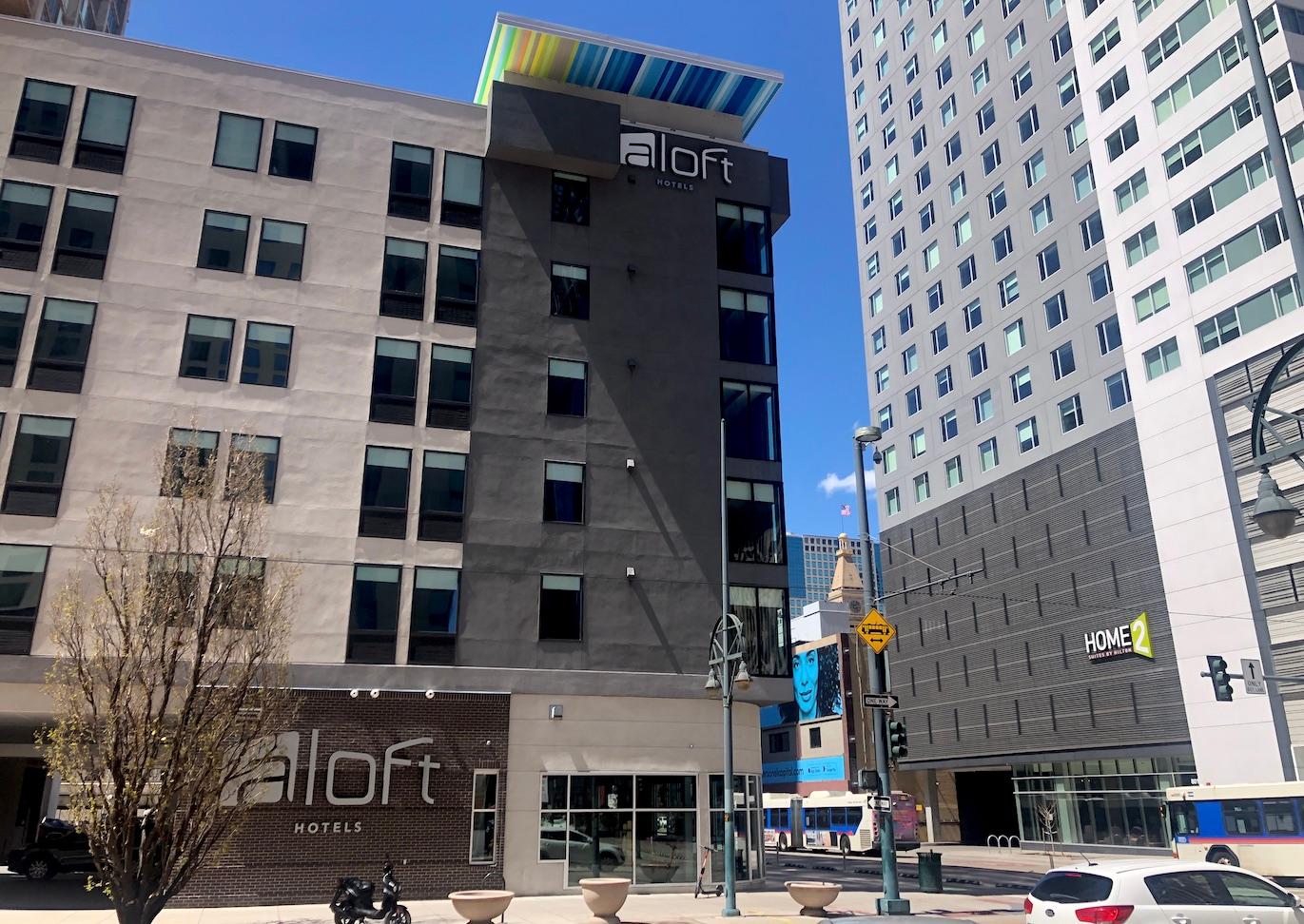
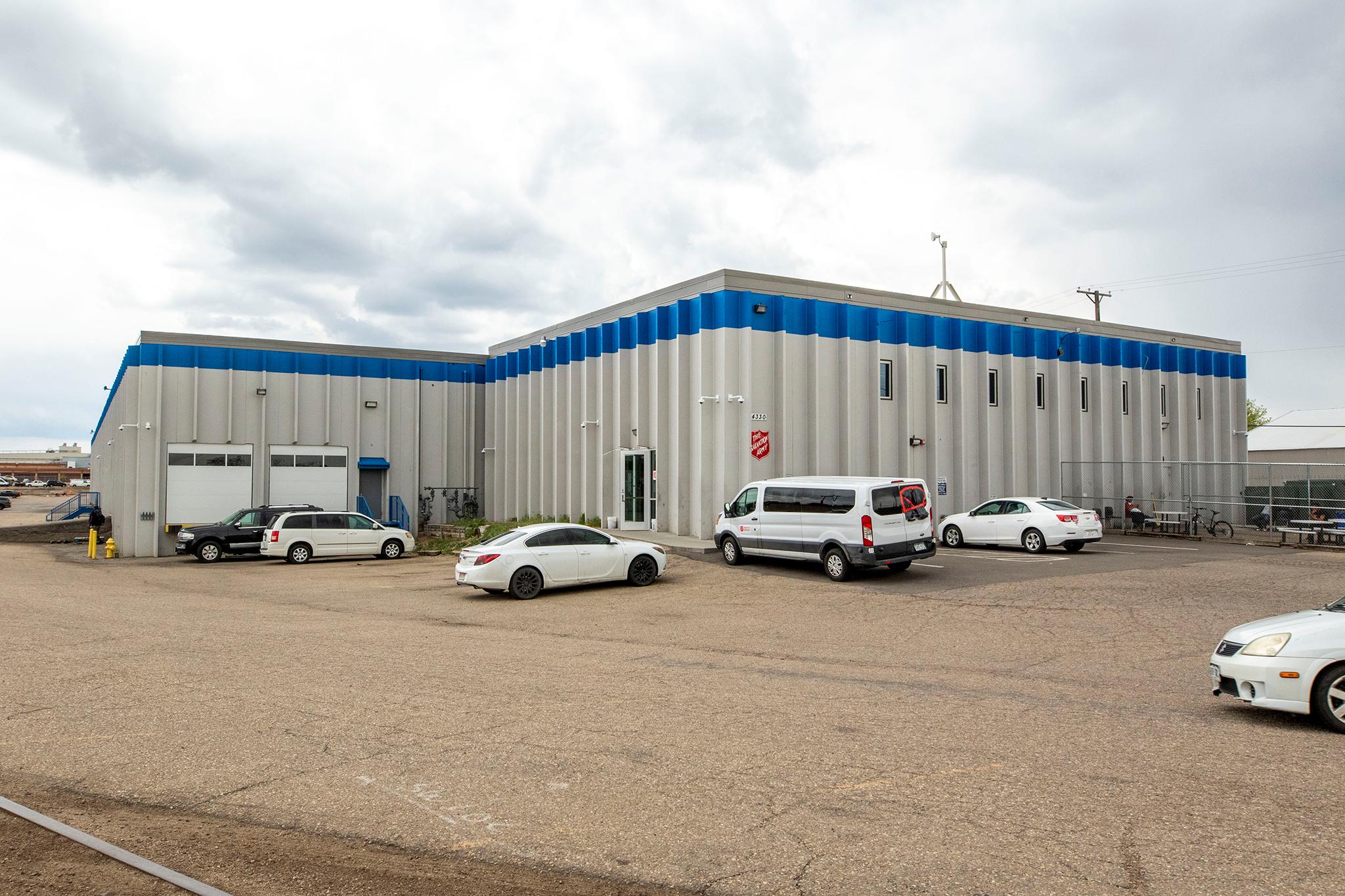
On June 8, in the first such testing effort among people living in encampments, the coalition worked with Denver public health officials to test 50 volunteers at the corner of Stout and 22nd streets. None of those 50 tested positive.
On Friday, Shanna Goodrich's tent was the only one on a 40-foot stretch of grass between the sidewalk and the curb along Park Avenue West between Stout and California streets.
Other tents in the area were pitched closer together. Health officials urge people to stay six feet from one another to slow the spread of the coronavirus. They also urge frequent hand-washing. Goodrich said she keeps a supply of hand sanitizer in her purse and goes to the Colorado Coalition for the Homeless health center once a week for a COVID-19 test. So far, she has tested negative.
"I just try to keep myself safe," Goodrich said.
Goodrich said she spent a month in the Coliseum shelter before leaving because she was worried about falling ill there. Alderman said shelters and other places where large numbers of people are gathered are a concern when it comes to disease.
Goodrich said the Coliseum had one advantage: It was cool.
"I'm about ready to move to some shade," Goodrich said before zipping her tent closed and heading across the street to Sonny Lawson Park. In addition to trees, the park has portable toilets and a public hand-washing station.

